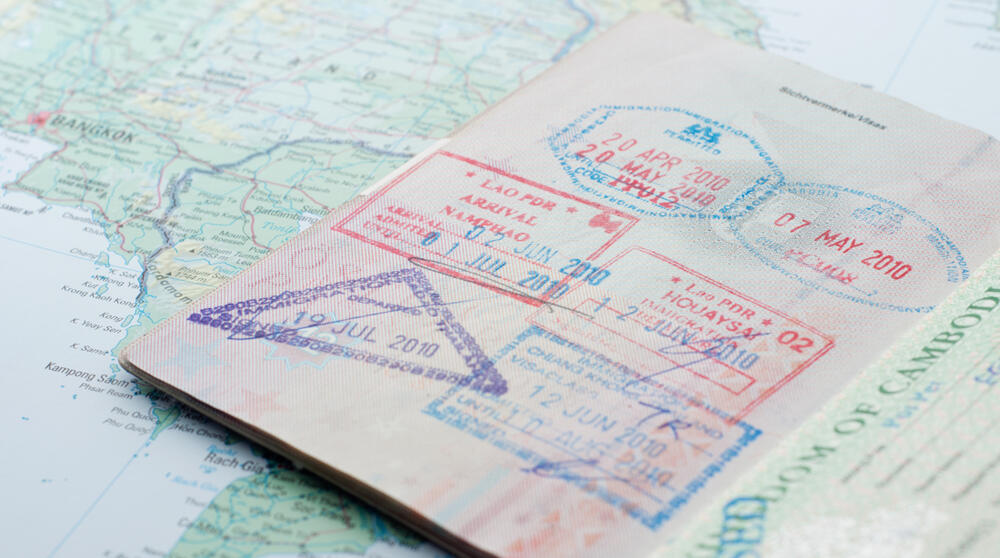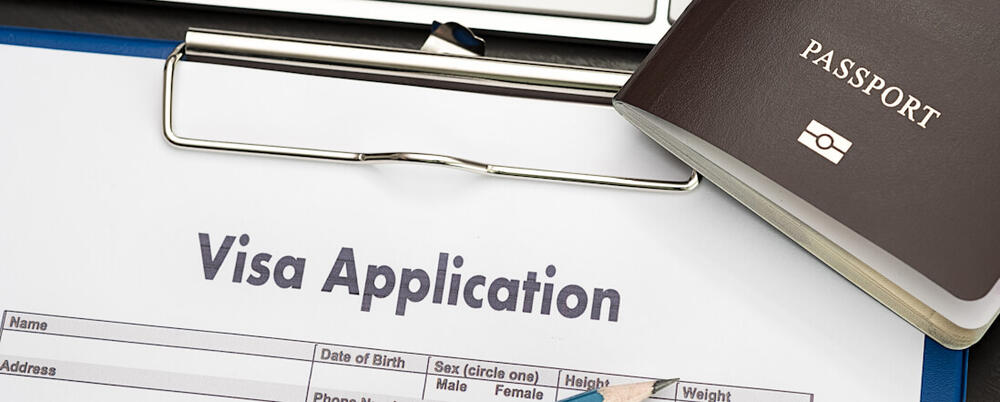The story of digital nomad visas today tracks the story of remote work, and the latest chapter in remote work started in 2020 as many countries locked down to try to slow down an infectious and deadly virus. Office workers were encouraged to work from home, and teleworking technology was live-tested en masse. This led to an explosion in the uptake of conferencing and messaging platforms, productivity trackers, shared sheets, and other collaboration tools, and a growing sense that a lot of work can be done from anywhere: your office, your kitchen table, a café, or maybe even another country.
In August 2020, Estonia launched the world’s first official digital nomad visa. The idea was to make up for lost tourism income by inviting international workers to work from their home jobs in another country. Many European countries have since followed suit, including Spain, Portugal, Italy, Croatia, Germany, Greece, Estonia, Malta, and Romania.
Several Caribbean islands have also introduced programmes, including Barbados, the Cayman Islands, and Antigua and Barbuda. Asia is also rapidly rolling out digital nomad visas, including Japan, South Korea, Thailand, Malaysia, Indonesia, the Philippines, and Taiwan.
The global digital nomad population reached over 18 million Americans by 2024, a 150 percent increase since 2019. Global digital nomad numbers are estimated to be between 35 and 45 million worldwide, and some projections suggest numbers could exceed 60 million by 2030.
What are digital nomad visas?

Who's eligible for a digital nomad visa?
A digital nomad visa is a specialised permit that allows you to live and work remotely in a foreign country without traditional residency requirements. These visas target remote workers, freelancers, contractors, and entrepreneurs who earn income from foreign sources – typically employers or clients based outside the host country. Eligible work includes roles that can be performed remotely via internet connection, such as software development, consulting, writing, or running an online business.
What's required to apply for a digital nomad visa, and how long are they valid for?
Tourist visas typically allow 30- to 90-day stays and prohibit remote work, but digital nomad visas authorise extended stay periods and remote work. They usually require income from employers or clients located outside the host country, and you’ll generally have to clear a certain income threshold to be eligible. The typical duration ranges from six months to two years initially, with many programmes offering renewal options.
You’ll generally need at least a current passport, evidence of steady income, health insurance, a clear criminal record, and proof of accommodation.
Can you get permanent residency via a digital nomad visa or bring dependenants?
Most digital nomad programmes don't provide direct pathways to permanent residency, although there are some exceptions, such as Portugal and Spain (both five years). Family members can typically be included, although with increased income requirements, usually 25 to 50 percent extra per dependant. Age isn’t usually a factor, except in Turkey, where you must be 21 to 55.
What tax obligations do digital nomads have?
Tax obligations follow the 183-day rule in most countries – stays under 183 days typically maintain home country tax residency, and once you’ve spent more than half the year, you’ll have to pay local taxes. Many countries offer tax exemptions on foreign-sourced income, including Croatia, Malta, the UAE, and Panama. Thailand’s tax exemptions for digital nomads were significantly revised in 2024.
New digital nomad visas in 2025

Four countries have launched new digital nomad visa programmes so far in 2025. The Philippines, Taiwan, Bulgaria, and El Salvador all introduced their visas during the year.
Philippines Digital Nomad Visa
Duration: 12 months with a one-time 12-month extension
Key Benefits: Exempt from income tax on foreign earnings
Who Qualifies: Foreign nationals aged 18+ from countries with reciprocal visa arrangements with the Philippines, working remotely for foreign companies or clients. Must have sufficient income generated outside the Philippines, health insurance and a clean criminal record
Application Process: Through Philippine embassies and consulates worldwide
Read more about Moving to and Living in the Philippines
Bulgaria Digital Nomad/Freelancer (Type D Visa)
Duration: 12 months, renewable
Key Benefits: 10 percent flat tax rate, Schengen travel access post-2025, low cost of living
Who Qualifies: Non-EU/EEA/Swiss nationals earning at least BGN 46,650 annually (€23,850), working remotely for outside companies; freelancers and business owners without clients in Bulgaria
Application Process: Online via the Employment Agency and the consulate
Read more about Moving to and Living in Bulgaria
Taiwan Digital Nomad Visitor Visa
Duration: Six months (Digital Nomad Visa) or one to three years (Taiwan Employment Gold Card)
Key Benefits: Exempt from Taiwan income tax on foreign earnings; the Gold Card combines a work permit and residence rights
Who Qualifies: Nationals from visa-exempt countries earning at least USD 20,000 annually (ages 20 to 29) or USD 40,000 annually (ages 30+); Gold Card requires TWD 160,000 monthly income and 5+ years of experience
Application Process: Through Taiwan overseas missions via Taiwan’s online visa application system
Read more about Moving to and Living in Taiwan
El Salvador Digital Nomad Visa
Duration: Four years total (one year initially, renewable)
Key Benefits: No tax on foreign-sourced income; duty-free import of household goods up to USD 20,000 and vehicles up to USD 25,000
Who Qualifies: Remote workers earning at least USD 1,460 monthly (USD 2,190 for families of three or more), working for foreign employers or clients outside El Salvador
Application Process: Through El Salvador embassies and consulates; 45-day processing time
Read more about Moving to and Living in El Salvador
New digital nomad visas in 2024

Eight countries launched new digital nomad visas in 2024. The year was marked by major economies like Italy, Japan, and South Korea joining the trend, but emerging markets like Kenya and Kazakhstan also announced their own programmes, although published details for these are still limited. Thailand stands out with its five-year multiple-entry visa, which is the longest duration offered by any new programme.
Italy Digital Nomad Visa
Duration: One year with an option to renew annually as long as requirements continue to be met
Key Benefits: Access to the Schengen Area, and after five years of continuous residence, eligibility for long-term residence; potential path to citizenship after 10 years
Who Qualifies: Non-EU citizens earning at least EUR 24,789 annually (USD 27,000) with at least six months of remote work experience and contracts with foreign employers
Application Process: Submit the application in person at an Italian consulate or embassy, then apply for a residence permit within eight days after entering Italy; processing can take one to three months.
Read more about Moving to and Living in Italy
Japan Digital Nomad Visa (Designated Activities)
Duration: Six months, non-renewable, but can reapply after a 6-month break
Key Benefits: Exempt from Japanese income tax on foreign earnings, family not required to join national health insurance
Who Qualifies: Nationals from 49 countries with tax treaties or visa exemption agreements with Japan, earning at least JPY 10,000,000 annually (USD 68,000), applying for the ‘Designated Activities’ residence status
Application Process: Must apply for a Certificate of Eligibility first, then apply through Japanese embassies or consulates, submitting documents proving income, insurance, and remote work.
Read more about Moving to and Living in Japan
South Korea Workation Visa (F-1-D)
Duration: One year initially, renewable for an additional year (total up to two years)
Key Benefits: No minimum stay requirement, family inclusion allowed
Who Qualifies: Remote workers earning at least KRW 85,000,000 annually (USD 62,000) who have worked in the same industry for at least one year and have employer permission to work remotely in Korea
Application Process: Must apply in person at a Korean embassy or consulate; processing usually takes one to two weeks
Read more about Moving to and Living in South Korea
South Africa Digital Nomad Visa
Duration: Three years total
Key Benefits: No local income tax on foreign earnings, low cost of living
Who Qualifies: Remote workers earning at least ZAR 650,976 annually (USD 37,000) from most countries with proof of employment and income
Application Process: Applications through South African embassies, consulates, or VFS; requires submitting documents proving employment, income, and a clean criminal record to South African immigration authorities.
Read more about Moving to and Living in South Africa
Turkey Digital Nomad Visa
Duration: Generally one year with possible renewal
Key Benefits: Tax-free status for stays under 183 days; family dependant permits are available
Who Qualifies: Applicants aged 21 to 55 from eligible countries (currently 36 countries in Europe, North America, and some others) earning at least USD 36,000 annually, must hold a university degree
Application Process: Two-step: online application for Digital Nomad Identification Certificate, followed by in-person embassy/consulate visit to obtain the visa.
Read more about Moving to and Living in Turkey
Destination Thailand Visa
Duration: Five years multiple-entry with up to 180 days permitted per visit, extendable once
Key Benefits: Exemption from Thai income tax for foreign income if stay is under 183 days per year; family inclusion possible
Who Qualifies: Remote workers employed by overseas companies or freelancers with clients outside Thailand, with a bank balance of at least THB 500,000 (USD 14,000)
Application Process: Application done online via the official Thai government or e-visa website or through Thai embassies; processing generally takes more than two months.
Read more about Moving to and Living in Thailand
What next?
Digital nomad visas started out as experimental programmes, but they’re increasingly becoming standard immigration options, and over 60 countries now offer remote work visas.
Income requirements, visa durations, and tax treatment are significantly different between countries, and this will take applicants a lot of research. You may want to get professional guidance when coordinating documentation requirements or planning multi-country stays. For assistance with application requirements and tax planning, check our directory of Worldwide Relocation Companies.



